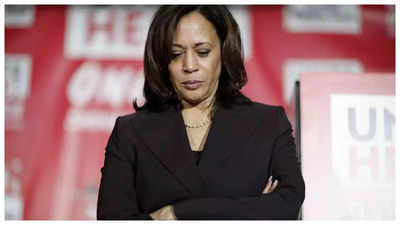Vice President Kamala Harris’s campaign ended with over $20 million in debt, highlighting financial strain following high spending and an aggressive ad strategy. Christopher Cadelago, California bureau chief for Politico, posted on X that Harris’s campaign “ended with at least $20 million in debt,” according to two sources familiar with the matter.
This debt surfaced in the campaign’s final week, with Breitbart News noting that insiders attributed it partly to campaign manager Jen O’Malley Dillon’s decisions on high-profile concerts and intense ad campaigns.
Harris’s campaign reportedly attracted significant donations, raising over $1 billion, with $118 million still available as of mid-October. However, spending spiraled, leaving the campaign scrambling to address the deficit. “Jen [O’Malley Dillon] blew through a billion dollars in a few months,” a campaign staffer told Breitbart News. Concerts featuring stars like Katy Perry, Lizzo, Eminem, and Bruce Springsteen were intended to energize young voters but proved costly.
Record-breaking spending, but not enough to win
Despite massive spending, Harris’s team and Democratic allies channeled around $1.4 billion into political ads, outspending Trump and his allies by nearly $460 million, reported Fox Business. Yet, the spending didn’t secure key swing states, ultimately giving Trump an edge in a close race in Wisconsin.
Data from AdImpact, an analytics firm, shows Harris’s focus on battleground states—Pennsylvania, North Carolina, Wisconsin, Georgia, Nevada, and Michigan—which absorbed nearly 80% of her ad spending. But outspending opponents in these states didn’t translate into wins; Trump’s narrow victories highlighted a gap between spending and voter influence.
In Pennsylvania, for example, Harris outspent Trump by $261.9 million, yet Republicans held strong. Tax policy was the most discussed campaign issue, with Harris’s ads dominating airwaves on this topic—but it’s unclear if her messages connected with key voters.
What went wrong?
The breakdown of spending raises questions about the effectiveness of Harris’s strategy. Some critics point to a focus on star-studded events that failed to boost voter support. While the goal was to build excitement across a wide audience, some argue this approach led to financial strain without significant voter gains.
Harris’s loss—and the resulting debt—may lead to a rethinking within the Democratic Party on campaign spending priorities, especially as Republicans achieved a historic win with fewer financial resources.
